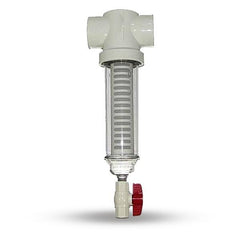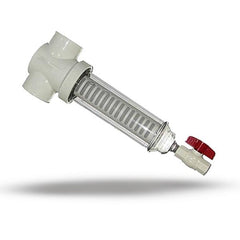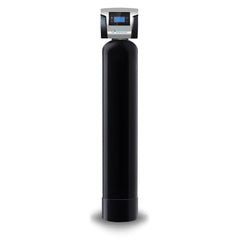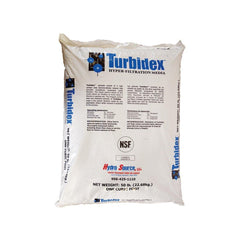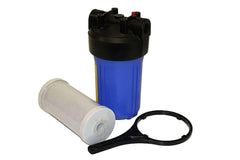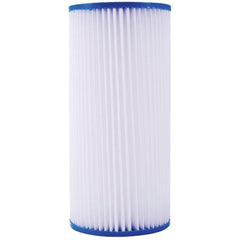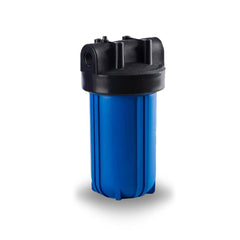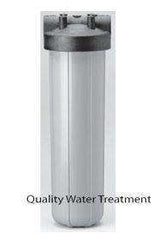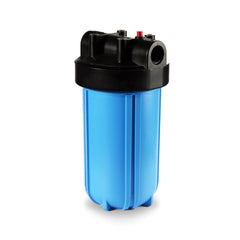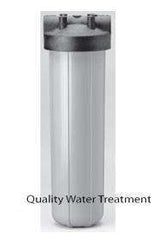WELL WATER SEDIMENT FILTRATION
Rusty Water, Sediment Particles?
These self-cleaning, sediment backwash systems have got you covered.
With the ability to filter down to 5 microns, these systems are excellent choices for removing fine particles, dirt, and rust; and, unlike filter-cartridge systems, these systems will not restrict flow or pressure.
Replace or Clean Your Filters
Sediment Filters Work Hard

Sediment filters are typically the first stage in a water treatment system.
Sediment filters are designed to capture and remove sand, rust, dirt, metals, silt, and other particles from the water.
Filters remove everything down to a tiny 5 microns in size!
Removing these particulates helps to treat and protect a water treatment system such as a water softener, whole house filter and appliances that use water.

- Certified to NSF standard 42, FDA approved material.
- 100% higher purity Polypropylene, surfactant totally free, binder-free and adhesive-free.
- Higher chemical resistance.
- Extends the filter life having a much lower pressure drop.
Regularly replacing sediment filters is cost-effective and essential to maintain optimal water quality by removing solid particles and debris. Neglecting to replace these filters can lead to reduced filtration efficiency, compromised water purity, decreased water flow and potential damage to a filtration system.
WATER Analysis Report
Size Does Matter - Check Your Water & Options


- Get Your Free, Instant Water Report
- Custom Sizing Recommendations
- Get quality recommendations to match your specific needs
ANALYSIS REPORT
Measure Your WELL PUMP FLOW RATE
Check your well pump's effective flow rate... Easy as 1, 2, 3...

Minimum Water Flow Rate Required:
The size of an iron filter or pH neutralizer system is dependent on the flow rate from your well pump.
Please check your flow rate to select the properly sized system.
Do not select a system that requires a higher flow rate.
PRODUCT & TECHNICAL SUPPORT
Real Experts That You Can Count On


Steer clear of the guessing game.
You are investing your hard earned money into a solution to provide quality water for your family.
We cut through the clutter for you to make the right decisions.
Unlike the big box stores…
Our team of experts recommend the best solutions that’s available in the entire marketplace.
Our water treatment consultants help you before AND after your purchase.
Our customers are like family.
What are the signs that a sediment filter needs replacement?
Sediment filters need replacement when their performance begins to decline, which can be identified through several clear signs. One of the most common indicators is a noticeable reduction in water flow or pressure.
As sediment accumulates and clogs the filter, it restricts water movement, causing slower flow rates. Another key sign is a change in the taste, smell, or appearance of the water. If the water develops an unpleasant odor, tastes unusual, or appears cloudy with visible particles, it indicates that the filter is no longer effectively trapping impurities.
Additionally, some sediment filters have visual indicators, such as clear filter housings that allow you to see when the filter has become dirty or saturated with debris. In cases where filters are not visibly accessible, you might notice brown scaling or sediment deposits in your water supply, which suggests that the filter is no longer functioning optimally. For systems equipped with filter replacement indicators, these may alert you when it’s time for a change based on usage or contamination levels.
Regular maintenance schedules also help determine when to replace sediment filters.
Typically, they should be replaced every 3-6 months, but this can vary depending on water quality and usage. Areas with high sediment content may require more frequent replacements to maintain optimal filtration performance and protect downstream systems. Ignoring these signs can lead to reduced water quality and potential damage to plumbing systems and appliances.
WHY BUY FROM US
Real Experts. Real Value.


